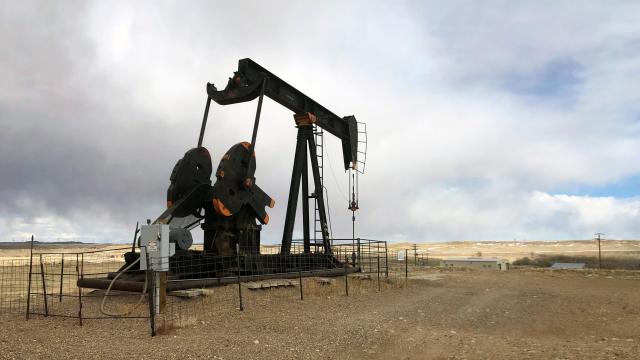In a late Friday news dump this month, the Biden administration announced that it would restart oil and gas drilling on federal lands, offering leases for sale to fossil fuel producers later this year. The new leases would open some 144,000 acres of federal land, scattered across nine states, to oil and gas drilling. These leases “are going to cause billions of dollars in social and environmental harm,” said Michael Freeman, a senior attorney at Earthjustice.
Watching these lease sales move forward is particularly puzzling given Biden’s consistent promises on the campaign trail to end all oil and gas drilling on federal lands. It looked for a while like the administration was set to keep those promises: As one of his first acts as president, Biden issued an executive order pausing the oil and gas leasing program while the administration conducted a review, including accounting for the “climate costs” of the program. A coalition of oil and gas-friendly states promptly launched a lawsuit against the order, and a judge sided with those states last June.
While the Biden administration has insisted publicly that the judge’s order has forced it to resume the leasing programs, advocates say other options to delay or significantly reform the program are still on the table. What’s more, the Interior Department promptly put up the largest fossil fuel sale in history last year as its first foray back into the leasing game after the judge’s order.
“The agency’s hands are not tied [by the lawsuit] in a way that forces them to offer a giant carbon bomb of leasing,” Freeman said.
This new sale is definitely not as damaging, carbon-wise, as that Gulf of Mexico sale, and the administration’s press release touted the sale as “significantly reformed,” noting both an increase in royalty fees — from 12.5% to 18.75%, the first such increase in more than 100 years — as well as a marked decrease in the original amount of land offered. As the conflict in Ukraine rages and gas prices soar in a midterm year, President Biden is under pressure to lower energy prices, which could explain the optics of the move — if not reflecting the actual reality of what’s needed.
“The industry is making its usual argument that gas prices are high and they need to lower gas prices, but these lease sales won’t do anything to reduce gas prices,” Freeman said. “When they’re sold, leases don’t get developed until five to 10 years into the future.”
This decision — and any additional sales the administration might offer — has serious implications for the climate. A study published in Climactic Change just a few days after the announcement finds that emissions from oil, gas, and coal extracted from federal lands make up just under a quarter of the U.S.’s total emissions since 2005. A 2018 study, meanwhile, found that banning new fossil fuel leases on federal lands could cut U.S. emissions 5% by 2030. That may not sound like a lot, but it’s a significant win for a policy that would require the federal government to basically do nothing but stop auctioning off land.
Making this all even stranger is the fact that the oil and gas industry is not happy with the new leases. Despite sitting on thousands of acres of unused land — the industry has only used 47% of the federal onshore leases it currently holds — and getting away with paying bargain-basement royalty fees for years, the American Petroleum Institute said the new lease terms “may further discourage oil and natural gas investment on federal lands.”
So what’s it all for? If the industry is going to keep pushing back on these minimal reforms, and breaking campaign promises isn’t even going to lower gas prices — and if the Biden administration is going to keep approving oil and gas leases at a record pace — is the compromise position on climate really the smartest one to take?
“Offering [the industry] hundreds of new leases in Wyoming and other states isn’t going to do anything to address gas prices,” Freeman said. “What it will do is lock in more oil and gas development that is directly contrary to the commitments the Biden administration has made to address climate change.”
